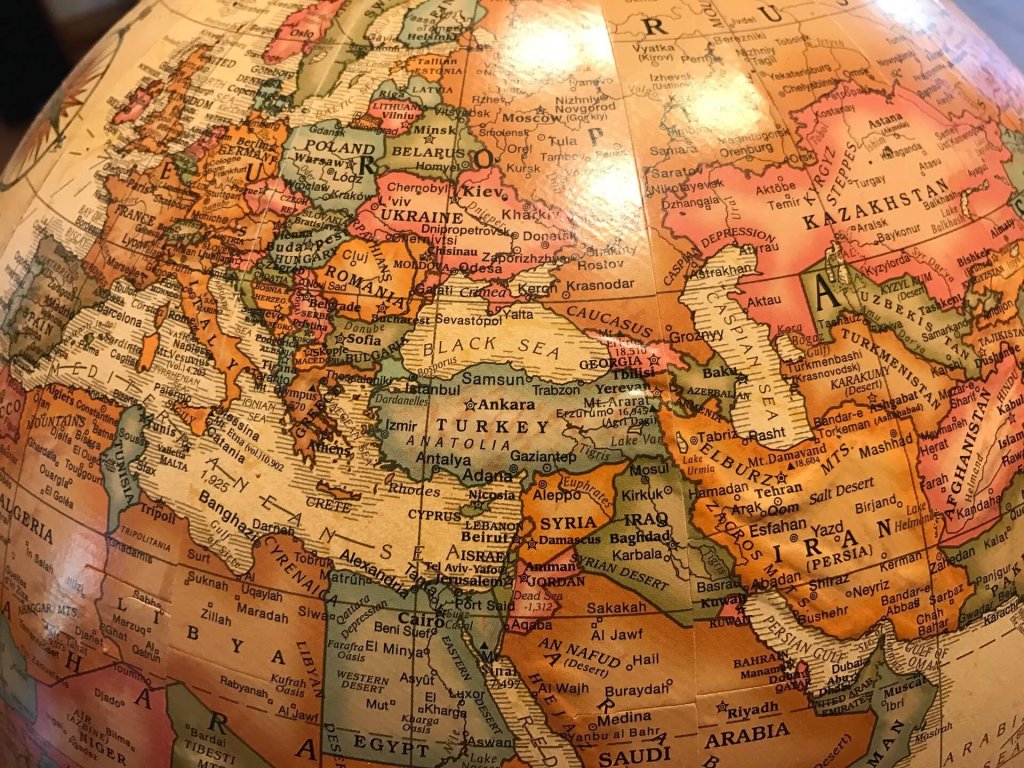Turkey and the Evolving Black Sea-Caspian Region; Potential for a New Positive Agenda – Mamuka Tsereteli

Following the break-up of the Soviet Union, the Unites States, together with Turkey and other Western allies, led the process of strengthening the political and economic sovereignty of the newly independent countries in the South Caucasus and Central Asia. Turkey was a major anchor and channel of Western political, strategic, and economic interests in the Black Sea-Caspian region.
This collaborative effort brought about the development of the vibrant energy, trade, and transit connections between the Black Sea-Caspian region and the Mediterranean, delivering huge economic and political benefits to all the producing and transit countries of the region: Kazakhstan, Turkmenistan, Azerbaijan, and Georgia. But Turkey was, and continues to be, the major beneficiary of the economic, political, and security benefits of the East-West energy and transportation corridor, of the expanding pipeline, railway, highway, and port infrastructure, linking the country to Caspian resources and markets. Further, the enlargement of NATO and the EU also brought more security and economic development to the western shores of the Black Sea – to Bulgaria and Romania.
But developments of the last decade drastically changed the strategic environment in the Black Sea-Caspian region. Due to much weaker US-Turkish alliance since the war in Iraq, and the overall decline of the US presence and leadership in the region, the Russian Federation has regained significant power and influence in the former Soviet space.
By controlling Crimea, Russia has now almost complete strategic dominance over the Black Sea, supported by a significant military presence in the breakaway regions of Georgia -Abkhazia and Tskhinvali region- as well as in Armenia, allowing it to establish control over the major elements of East-West transit infrastructure and communication lines on relatively short notice. Russia also made significant progress in expanding the Eurasian Economic Union (EEU), which in addition to original members -the Russian Federation, Belarus, and Kazakhstan- now also includes Armenia and Kyrgyzstan. By displaying its willingness to use military force in Georgia in 2008 and Ukraine in 2014, Russia has sent a warning to other neighbors as well, which has been received loud and clear. Military success in Georgia and Ukraine also emboldened Russia to move more aggressively in the Middle East, especially with its presence in Syria. The strategic significance of the weak Western response to Russian aggression in the Black Sea region has become more evident as time passed.
Another winner of the last decade in dealings with the Black Sea-Caspian region has been China. Following the decline of the energy and military-security interests of the US in the Caspian region, China has emerged as the main beneficiary of previous US investment in infrastructure developments in the region, and has used its Belt and Road Initiative (BRI) as an instrument to advance its geopolitical interest.
Both Western and Turkish strategic miscalculations regarding developments in the Middle East have increased their mutual mistrust and miscommunication.
In contrast to Russia and China, Turkey is on its way to almost completely evaporating its major strategic gains of the 1990s and early 2000s. Both Western and Turkish strategic miscalculations regarding developments in the Middle East have increased their mutual mistrust and miscommunication. The mishandling of ISIS (the Islamic State of Iraq and Syria) and the Syrian civil war are a major part of the negative legacies of the last decade that empowered Russia both in Black Sea-Caspian region and the Middle East, and contributed to the weakening of Turkey in these regions. As a result, Turkey is now facing major threats of unprecedented magnitude in its recent history. The current weakness of Turkey and the Western inability to support it have pushed Turkey to look for compromises with Russia. But compromising with Russia from a position of weakness always comes with a cost, as Turkey and its Western allies are learning.
Historically, the balance in Turkish-Russian military conflicts does not favor Turkey, and only allying with Western partners, Turkey succeeded a handful of military and strategic successes in the past. The decade of growing dependency on energy supplies and trade with Russia, however, has made Turkey more vulnerable than ever before to Russian encroachments.
For the broader region of the Black Sea-Caspian, and for Georgia and Azerbaijan in particular, Turkey is an indispensable strategic partner that has enabled them to be linked and integrated into global economy. For two decades after the end of the Cold War, Turkey served as a major balancing factor for Russian influence in the South Caucasus and the Black Sea. But as of today, Turkey’s ability to perform the role of a pro-active strategic actor in the Black Sea-Caspian region has significantly narrowed, leaving the space open for more Russian presence and political influence in the region.
The security and sovereignty of the states in the Black Sea-Caspian region can only be ensured through a strong Turkish-Western alliance opposing Russian influence, and with truly functioning and growing East-West trade and transit connections, which can, and should, engage as many actors as possible. In the changing strategic environment, in times of pandemic and low oil prices, it is time to bring back a positive agenda in the region’s development. History demonstrates that major infrastructure projects can bring countries together, allowingthe large-scale presence of a wide range of international actors, including commercial interests of producers, global traders, and consumers from Europe, Asia, and the United States.
In this context, Turkey’s planned Canal Istanbul project may be turned into an additional incentive for regional collaboration instead of its current nationally divisive nature. This large scale navigational artery, if accomplished, could be utilized to help both Central Asia-Black Sea-Mediterranean as well as Northern Europe-Poland-Ukraine-Black Sea-Mediterranean connectivity, boosting major economic, political, and strategic development in the wider Black Sea area. It could be evolved into a perfect opportunity for Western institutions to come up with cost-sharing arrangements with Turkey, thus turning it into a new collaborative project of Transatlantic partnership. NATO allies – the US, Turkey, Poland, the Baltic States, Romania, Bulgaria – as well as non-NATO allies such as Azerbaijan, Georgia, Ukraine, and the Central Asian countries could all benefit from the project. Even the Russian Federation may become a user of the canal down the road.
The project has strong public opposition in Turkey for several reasons. First of all, there is resistance from environmentalists, since the Canal will cross and transform several significant ecosystems, and will change the natural exchange of water between the Black Sea and the Marmara Sea. It will also impact drinking water supply to Istanbul (The Guardian, 17 Feb 2020). There are questions about the transparency in allocation of tenders, and critics see the project as a mean for further enrichment of pro-government businessmen. There is an additional concern about the defensibility and security of the European part of Turkey if the Canal is constructed. It may leave the Western part separated from the rest of the country, without adequate defense. There are also apprehensions, both in Turkey and outside, with regard to the Montreux Convention, which has been regulating the passage through the Turkish Straits since 1936.
But all of these concerns can become more manageable if Turkey creates an international consortium for the development of the Canal and invites the US and other Western and regional partners to develop and manage the project jointly. This will ensure transparency, environmental accountability, shared financial risk, and a collective security umbrella for the project. The internationalization of the project may bring a much-needed positive agenda to Turkey and to the wider Black Sea region, bringing back the collaborative spirit of late 1990s, while contributing to the region’s economic recovery after COVID-19.
_______________________________________________________________________________________________

Mamuka Tsereteli is a Senior Fellow at the Central Asia-Caucasus Institute at American Foreign Policy Council, based in Washington, DC. He has more than thirty years of experience in academia, diplomacy and business development. His expertise includes economic and energy security in Europe and Eurasia, political and economic risk analysis and mitigation strategies, and business development in the Black Sea-Caspian region.